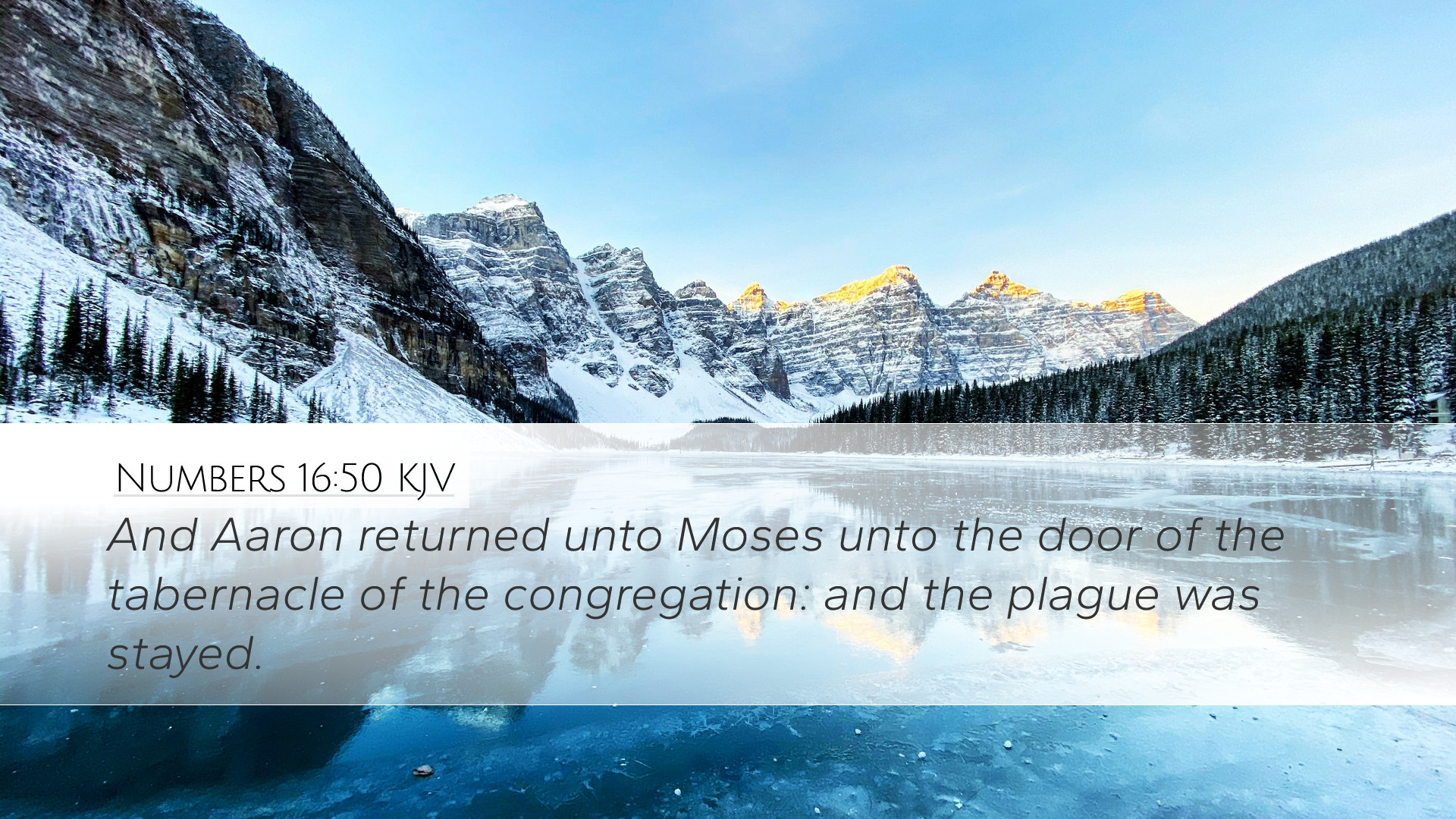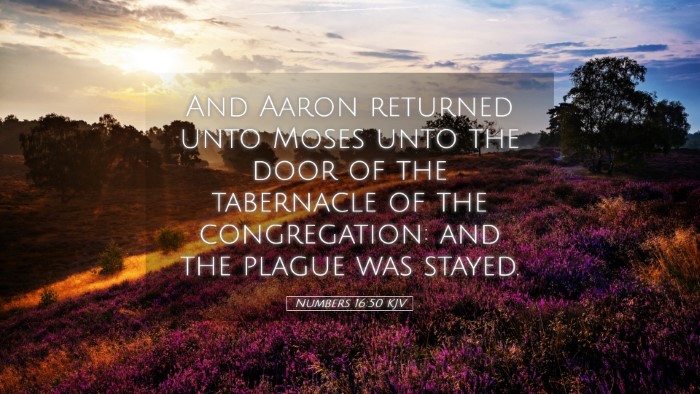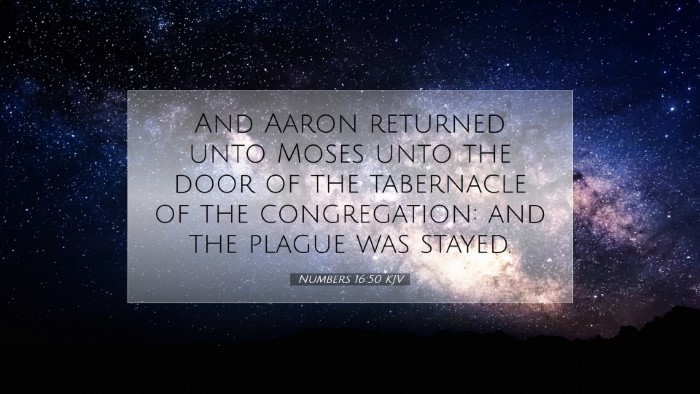Commentary on Numbers 16:50
The verse Numbers 16:50 states: "And Aaron returned unto Moses unto the door of the tabernacle of the congregation: and the plague was stayed." This passage concludes a significant episode in Israel's wilderness journey, where divine judgment was enacted upon the people for their rebellion against the leadership of Moses and Aaron. The verse reflects themes of intercession, judgment, and God's mercy, as outlined by various commentators.
Context and Background
The events leading up to this verse are pivotal in the narrative of the Israelites during their journey to the Promised Land. The rebellion led by Korah, Dathan, and Abiram (Numbers 16:1-35) resulted in God's decisive action against the dissenters. After the ground swallowed the rebels, a plague broke out among the people as a continuation of God's judgment against their murmuring and unbelief.
-
Intercession of Aaron: The act of Aaron returning to Moses signifies his role as a mediator. He runs to Moses, reflecting the urgency of intercessory prayer in times of crisis. As Adam Clarke notes, Aaron's action highlights the importance of leadership in times of calamity.
-
God's Mercy: The phrase "and the plague was stayed" illustrates the merciful nature of God. Despite the people's rebellion, God halts the judgment due to Aaron's actions. Matthew Henry emphasizes that even in punishment, God offers a way for mercy to triumph over judgment.
-
Significance of Location: Returning to "the door of the tabernacle" indicates the sacredness of this location. The tabernacle represents a place of communion with God, and it is where divine communication occurs. The return signifies that intercession is most effective when it is centered on God’s presence.
The Plague Stopped
The immediate cessation of the plague speaks to God’s sovereign authority over life and death. Albert Barnes notes that the outbreak of the plague serves as a warning against pride and rebellion, emphasizing the necessity of humility before God.
The Role of Leadership
Both Moses and Aaron exemplify strong leadership during a critical moment. The decision of Aaron to return to Moses indicates a united front in spiritual matters. Clarke discusses how the unity of God’s appointed leaders is essential when navigating God’s judgment and mercy.
Theological Implications
This passage invites deep theological reflection on the nature of God’s judgments. Numbers 16:50 serves as a reminder of repentance's power and the necessity of seeking divine intervention in the face of sin. The imagery of returning to the tabernacle reinforces the concept of turning away from sin and back towards God.
Practical Application
For pastors and theologians, this passage reveals the importance of prayer and intercession in moments of crisis. The role of leaders should not only be to lead, but to pray earnestly for their communities. The following points can be derived for practical application:
-
Interceding for Others: Just as Aaron interceded for the people, leaders today are called to pray for their congregations, especially during times of trial and hardship.
-
Emphasizing Repentance: The cessation of the plague teaches the necessity of turning back to God. Churches should cultivate environments where repentance and contrition are encouraged.
-
The Power of Unity: The partnership between Moses and Aaron emphasizes the strength found in united leadership under God. Collaboration in ministry is essential in effectively addressing spiritual issues.
Conclusion
Numbers 16:50 serves as a profound reminder of God's justice tempered by His mercy. It encapsulates the essence of leadership and intercession while reflecting the delicate balance between divine wrath and compassion. Through the insights of historical commentators, we gain a deeper understanding of the practical and theological dimensions of this significant moment in Israel's history. Leaders are not only called to confront sin but also to seek God's mercy and remind others of the hope we have when we return to Him.


